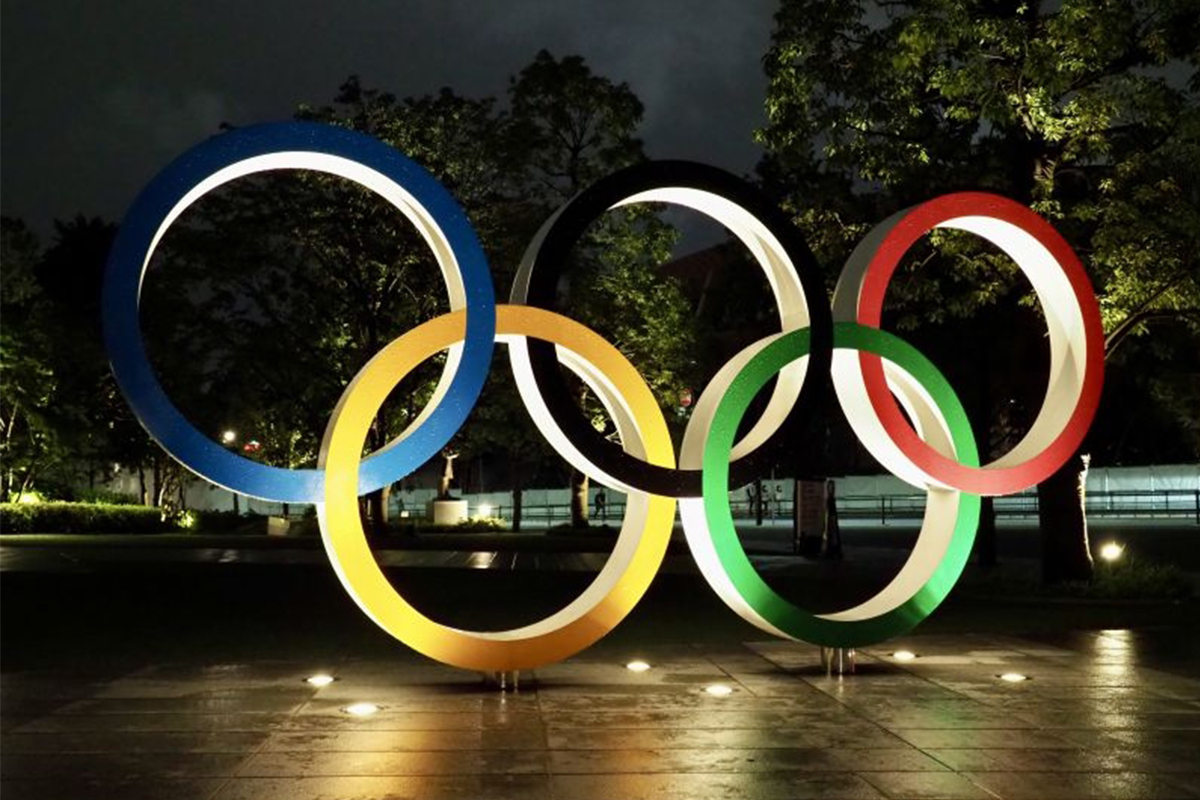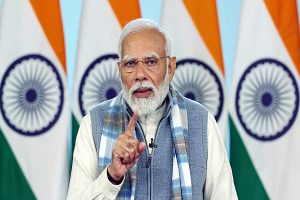With the Tokyo Olympics to get underway in a few days from now, anti-Olympic protests in major cities in Japan are not on the wane. People are concerned about safety of holding the Games during the global coronavirus pandemic and do not want to risk their lives. They do not have any confidence in the IOC’s promise to hold a ‘safe and secure’ Game. The IOC is still hopeful that public mood will swing once the Games are underway. This reasoning lacks any validity as it was for this reason that the Olympics was deferred by a year and the situation has not changed since then. On the contrary, the situation has worsened.
Covid-19 cases are on the increase in the past six months and closer to the dates the Games commence, they might rise further. The political leadership in Japan shall have to answer for the manner it handled the pandemic and decided to go ahead with the Games disrespecting public opinion despite the lurking danger for which no one has any permanent cure as yet. Indeed, it is a marquee moment for national pride. Competing for medals of any colour is not a priority for the Japanese people at a time when Tokyo is in a fourth state of emergency as infections are again on the rise and vaccination programmes are facing severe deficiency.
There is fear that the highly infectious Delta variant detected within the country and admitted by Prime Minister Yasuhide Suga himself, could be more devastating as less than a third of Japan’s 120 million people have received one dose of the vaccine, and less than 20 per cent are fully vaccinated. This is not what the Japanese peoples aspired for, and now feel their elected representatives have betrayed them despite the confidence they reposed on them.
With the fourth state of emergency imposed amid rising Covid cases, the organisers have decided to hold the events without spectators. The fourth state of emergency is set to continue until 22 August, which means the entire stretch of the Games will continue during a state of emergency. The IOC chief Thomas Bach is unwelcome in Japan as protests against his presence in Japan proved.
Health experts in Japan warn of a further wave of infections during the Games as so many people are going to come from different parts of the world. It remains also as a worry if the authorities will be able to maintain the bubble, failing which there shall be greater risk of the virus spreading. Protestors argue that public health should get precedence over anything else. Even with the Games days away, protestors are determined to keep up with the protests until the Games are cancelled.
There is also risk that the opening ceremony could turn ugly. The decision to cap the number of spectators to 10,000 per stadium is also a huge blow as Japan has spent over $15 billion on the Games.
An Asahi Shimbun survey in May had showed that 83 per cent wanted the Olympics should be postponed or scrapped. There has been no change since then. In fact the opinions have hardened against the Olympics as the pandemic continues to surge. Though overseas spectators are banned from attending the Games, this does not provide any guarantee against virus spread. The case of an athlete from Uganda disappearing from the Olympic village unnerved the organisers. This incident raised more questions about the oversight of Olympic participants.
At another level, the security balancing act by the organisers does not please the citizenry. Restaurants running skeleton operations are wary about whom to allow in view of the emergency regulations as well as for fear of the virus. People are also not comfortable with the massive display of security apparatus and complain that their country has become more like authoritarian North Korea or China than one of the world’s most powerful, vibrant democracies.
They fear that the estimated 85,000 or so athletes, officials, journalists and other workers coming into Japan could be potential sources for fast-spreading coronavirus variants as a sizable percentage of people are yet to be vaccinated.
There shall always be some violators of the restrictions despite strict regulations in any society. Not only the Japanese who normally do not break rules, there are foreigners who are known to violate rules such as on wearing of masks and drinking in public and smoking in public places despite announcements asking for adherence to Covid protocols. So, these are big holes which the authorities shall find difficult to plug.
Critics opine that the visitors from outside Japan are being treated as potential criminals and the IOC needs to take notice of this and not get bogged down to get the billions of dollars in media revenue critical to its survival. The IOC sees the Olympics purely as a business and ignores the implications related to this. That is regrettable. And the voice of the common men in Japan must be heard.
If the virus spread is not arrested, it would put Japan’s healthcare system under tremendous stress. There is a fear that the ICU facilities in hospitals shall collapse. It is surprising that the Suga administration is overlooking these critical issues.
As regards India, it remains unconcerned about the ground realities and has decided to send a large contingent of over 200 persons including athletes and supporting staff. That is a huge gamble. The lure of an Olympic medal at the risk of human lives defies logic. We have already seen the case of two members of the Indian cricket team now in England being detected as Covid positive.
Can we risk more? In a personal interaction, the Prime Minister Modi wished the athletes good luck and exhorted them to get laurels for the country. But as things stand now, exploits on the sporting arena may still get overshadowed by health concerns.
The writer is Senior Fellow at Nehru Memorial Museum and Library, New Delhi.












